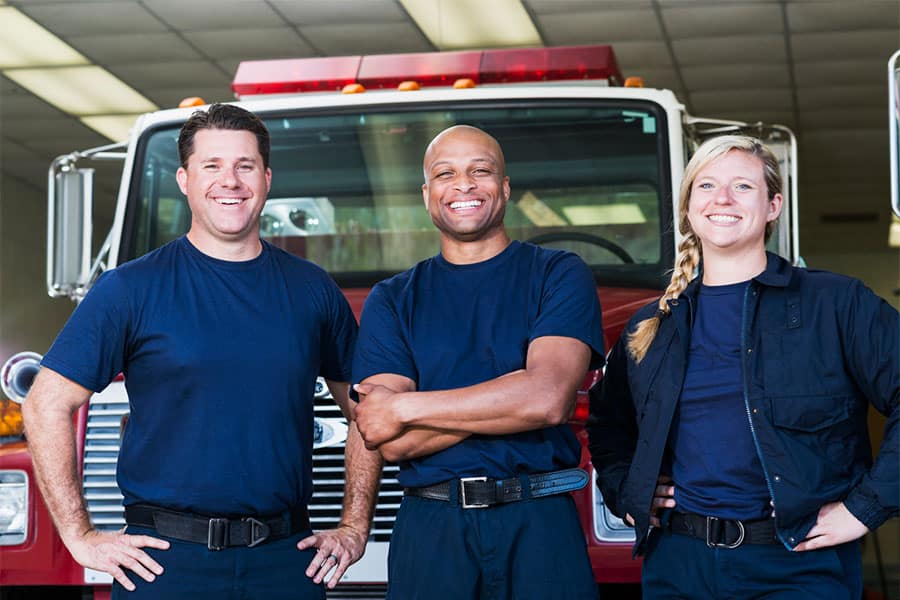First responders earn their title because they are the first to respond in emergency situations. EMTs, police officers, firefighters, and public safety communicators spend their careers saving lives. That intense role comes with equally intense emotions. Approximately 30% of first responders develop depression and PTSD, compared to 20% of the general population.
In this discussion, we will explore why PTSD is so prevalent among first responders and what you can do to treat/prevent mental health concerns as a first responder.
Why First Responders Have a High Risk of PTSD
Post-traumatic stress disorder (PTSD) is the result of a traumatic experience. This could be anything from the loss of a loved one to a car accident. PTSD is most commonly associated with members of the armed forces, but anyone can develop PTSD from exposure to trauma.
First responders are exposed to trauma on a daily basis. They never know what the day is going to bring, even if they feel “numb” about the job. PTSD may result from a specific traumatic event or from prolonged exposure. Either way, it may completely alter the life of a first responder.
How to Treat PTSD
PTSD treatment may involve therapy, medication, lifestyle changes, or a combination of solutions, depending on the responder’s individual needs. There are many approaches to PTSD treatment, such as cognitive behavioral therapy (CBT) and eye movement desensitization and reprocessing (EMDR).
In most cases, the therapist works to help the patient identify PTSD triggers and understand what caused their PTSD. This allows the patient to get better control of their responses or find coping strategies for PTSD symptoms. At CNLD Neuropsychology, we use personalized counseling techniques to help you manage life with PTSD and reduce the prevalence of PTSD symptoms.
Every situation is unique, and what works for someone else may not work for you. Thankfully, there are a variety of treatment options out there. We would be happy to discuss some of your options over the phone and match you with the PTSD specialist who best aligns with your needs.
PTSD Prevention Tips for First Responders
Understanding what triggers your PTSD is one of the best ways to prevent reactions in the future. Working through your trauma in therapy can also help you prevent PTSD in your daily life.
With this in mind, it may be necessary to take temporary leave from your work as a first responder to reduce your exposure. Give your mind a chance to heal and process your experiences before you jump back into potentially traumatic situations. Utilize your paid time off or pursue short-term disability to distance yourself from trauma triggers. Then, you can evaluate whether you want to return to work or seek a new position moving forward.
Lean on your support system in this time of need. This may require you to be vulnerable around your close friends and family, but that can help you relieve emotions that are trapped in your mind. Look for first responder support groups in your area or online. You might be surprised by how many people feel exactly the way that you do.
Above all else, give yourself grace. You have taken on a task that few people are brave enough to do. PTSD is not a sign of weakness. It is a byproduct of your strength, and it is something you can conquer with the right support.


